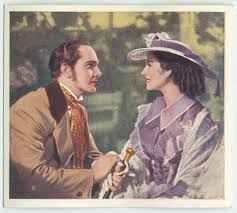Introduction
Elizabeth Barrett Browning and Robert Browning love story so profound that it transcends time, rooted in poetry, passion, and resilience. Elizabeth Barrett Browning and Robert Browning two of the most celebrated poets of the Victorian era lived such a tale. Their love affair, filled with secrecy, defiance, and creative inspiration, has captured the hearts of romantics and literature enthusiasts alike. Let’s delve into the life and works of these literary icons and explore how their union shaped their personal and professional lives.

Who Were Elizabeth Barrett Browning and Robert Browning?
Elizabeth Barrett Browning: The Prodigy
Born in 1806, Elizabeth Barrett grew up in a privileged household, demonstrating an early talent for writing poetry. By the age of 14, she had composed a long epic poem and gained recognition for her literary genius. However, her health was frail, and she suffered from chronic illnesses that confined her to her home for much of her early life.
Robert Browning: The Bold Visionary
Robert Browning, born in 1812, was a poet with a distinctive voice and a penchant for dramatic monologues. Unlike Elizabeth, Robert’s early works were met with mixed reviews, but he remained undeterred, confident in his unique style and vision.
How Did Their Paths Cross?
The Catalyst: Elizabeth’s Poetry
Robert first encountered Elizabeth through her poetry. Her 1844 collection, Poems, impressed him deeply, leading him to write a heartfelt letter of admiration. In this letter, he famously declared, “I love your verses with all my heart.” Little did they know, this letter would mark the beginning of one of the most iconic literary romances in history.
A Secret Correspondence
Their correspondence quickly blossomed into a secret exchange of letters. Over 573 letters were written between them over two years, making their love story one of the most documented of its time. These letters reveal their mutual respect, intellectual connection, and growing affection.
The Challenges They Faced
Elizabeth’s Family Opposition
Elizabeth’s father, Edward Barrett Moulton Barrett, was notoriously controlling and opposed to any of his children marrying. His authoritarian stance forced Elizabeth and Robert to keep their courtship hidden.
Health Struggles
Elizabeth’s frail health was another significant hurdle. She suffered from a mysterious illness that left her physically weak, making her family overly protective. Despite these challenges, Robert’s unwavering support gave her the strength to defy expectations.
The Secret Marriage
An Elopement to Remember
In 1846, the couple secretly wed at St. Marylebone Parish Church in London. Elizabeth’s decision to marry Robert was an act of courage and defiance. After their marriage, the couple fled to Italy, where Elizabeth’s health remarkably improved in the warmer climate.
Life in Italy: A Haven of Creativity
Settling in Florence
The Brownings made their home in Florence, where they enjoyed a relatively peaceful and inspiring life. Their residence, Casa Guidi, became a hub of artistic and intellectual activity.
Mutual Inspiration
Their life together fueled their creativity. Elizabeth wrote some of her most famous works during this time, including Aurora Leigh and Sonnets from the Portuguese. Robert, too, produced masterpieces like Men and Women and The Ring and the Book.
The Impact of Their Relationship on Literature
Elizabeth’s Groundbreaking Works
Elizabeth’s Sonnets from the Portuguese is considered one of the greatest sonnet sequences in English literature. Written as a testament to her love for Robert, it immortalizes their bond.
Robert’s Evolution as a Poet
Robert’s relationship with Elizabeth encouraged him to refine his craft. His dramatic monologues, filled with psychological depth, reflect the influence of their intellectual partnership.
A Legacy of Love and Literature
Enduring Themes in Their Work
Themes of love, resilience, and the triumph of the human spirit permeate their poetry. Their works continue to inspire readers and writers, proving the timelessness of their artistic and emotional connection.
A Love Story for the Ages
Elizabeth and Robert’s love story has been celebrated in biographies, plays, and films, ensuring their legacy endures.
The Final Years
Elizabeth’s Passing
In 1861, Elizabeth passed away in Robert’s arms. Her death marked the end of an extraordinary partnership, leaving Robert devastated but determined to honor her memory through his work.
Robert’s Later Life
Robert continued to write and achieve literary acclaim, but Elizabeth remained his muse. He never remarried, dedicating himself to preserving her legacy.
Also Read: Unveiling the Mystique of African Masks: A Glimpse into Tribal Rituals and Beliefs
FAQs About Elizabeth and Robert Browning
What is the significance of Sonnets from the Portuguese?
Sonnets from the Portuguese is Elizabeth’s declaration of love for Robert. Its heartfelt and intimate verses have made it a timeless symbol of romantic devotion.
How did their relationship influence Victorian literature?
Their union brought themes of equality, resilience, and intellectual partnership to the forefront of Victorian literature, challenging traditional norms.
Why did Elizabeth’s father oppose her marriage?
Elizabeth’s father disapproved of all his children marrying, likely due to his desire to control his family and preserve his wealth.
Where is Casa Guidi, and can it be visited?
Casa Guidi, located in Florence, Italy, is now a museum dedicated to the Brownings, offering insights into their life and work.
What makes their love story unique?
Their love story stands out for its blend of intellectual connection, mutual respect, and defiance of societal norms, all documented in their letters and poetry.
Conclusion
Elizabeth Barrett Browning and Robert Browning’s love affair is a testament to the power of love, creativity, and resilience. Their relationship not only shaped their lives but also left an indelible mark on the world of literature. As we read their poems and letters, we are reminded of a bond that transcended time and challenges, proving that true love is, indeed, eternal.


